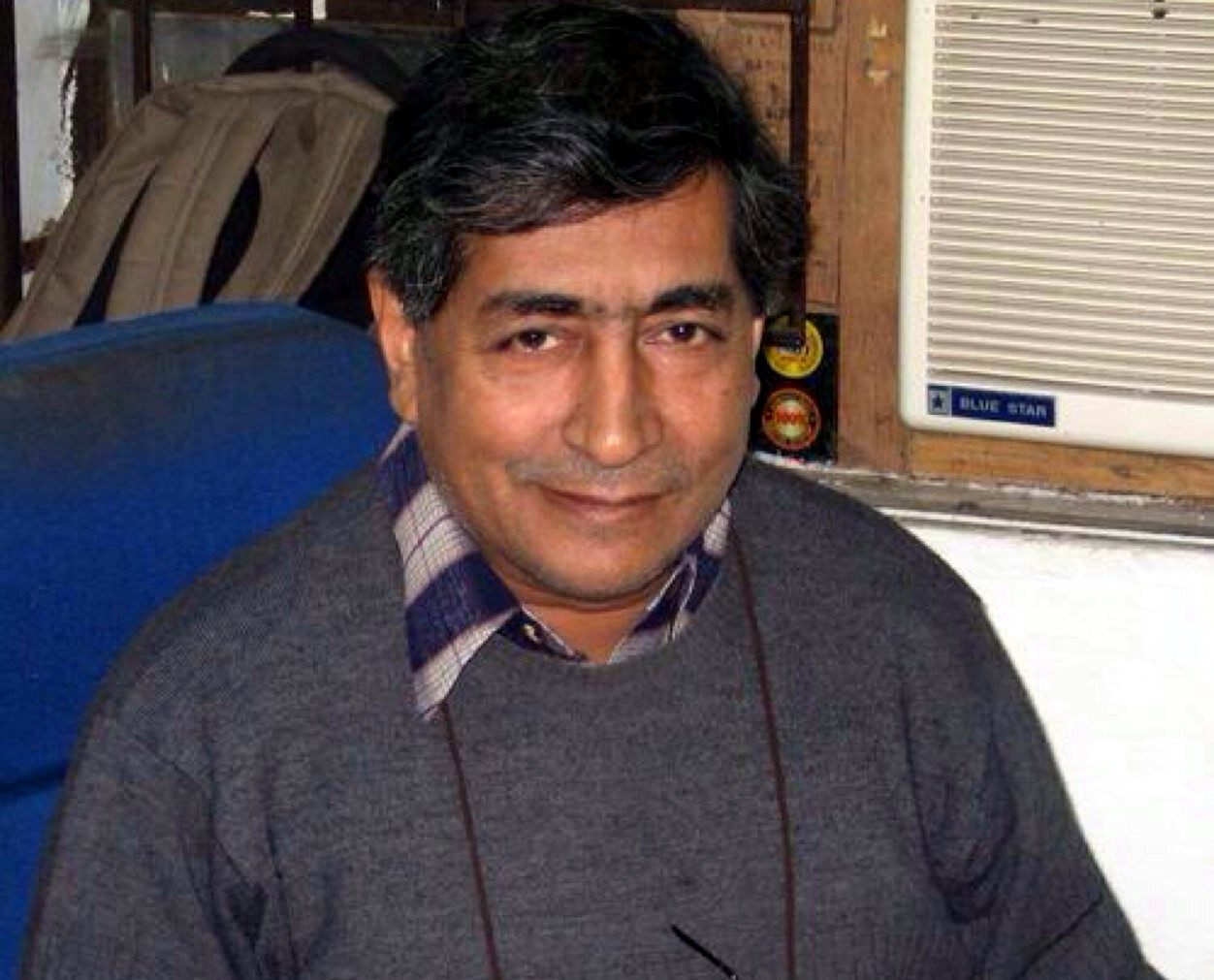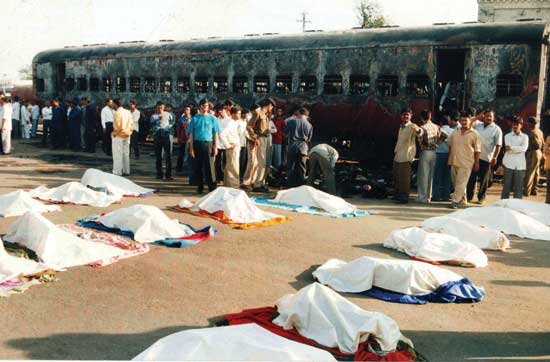.jpg)
The separation between State and religion is a critical aspect of a modern nation state like India that is rich with a multitude of religious, cultural and linguistic differences
Our basic problem today is the fundamentally flawed approach of the ruling sections which have tended to define secularism in practice as equality towards all religions whereas the Constitution that is founded on secular principles speaks of the need to separate religion from the State. This separation is a critical and defining aspect of a modern nation state like India that is rich with a multitude of religious, cultural and linguistic differences. In such a case, religion remains the choice of an individual and this right the State shall and is bound to protect.
But the moment the State intervenes to ensure equality between religions, and there is an overwhelming majority of one faith, that intervention inevitably and unfailingly favours the majority. This is exactly what we are witnessing in India today. Due to this flawed approach by the ruling political sections, whose practice post–Independence did not conform to what secularism must mean in terms of the modern Indian state, we are witnessing crude digressions today.
The argument that secularism is a foreign or a western notion being imposed on an inherently different Indian ethos is an apology for not being secular. The point is that the ethos of India and of any other country is not essentially different. Every culture, all peoples have their specificities but these in no way interfere or impinge on fundamental human impulses, needs and requirements. And here we are speaking of the fundamental principles of co–existence in a multi–dimensional reality.
It is imperative that the Indian state in a multi–religious, plural society like ours remains distanced from religion. This does not mean that the State is anti–religion; it only means that it will neither have nor assume a religious tinge or character. It will, in this very neutrality and also as a fundamental duty, protect the right of each and every citizen or individual living in its territory to his or her individual faith. That is, religion will and must remain in the private sphere.
This is especially critical in our situation where the evolution of the nation–state has been different from the European nation–state. Here, we have always had unity in a vast diversity. This diversity is not just religious, but linguistic and also includes various nationalities. To build a State writ within it, this concept of unity in a diverse situation such as this, requires that the commitment to secularism be all the more firm.
The argument, made in the converse by the right wing, that because of the diversity of India, the state needs to engage with different religions, then becomes even more slippery. Secularism in India will have to be richer and firmer in its separation because of this diverse reality. Besides, in India secularism and democracy are inseparable precisely because of this diversity. The protection of the right of the minority is the hallmark of the democracy. Secularism therefore is essential for a democracy.
The evolution of the modern state begins with Independence because the British colonial state was not modern. Secular democracy is the foundation of the modern Indian state. The foundation of the Constitution as a secular, democratic republic could be established in India even in the most trying times caused by Partition–related Holocaust and the assassination of Gandhi only because and only when the political class confronted communalism of both the majority and minority, frontally.
Hence, post–Partition, the RSS was banned in the wake of Gandhi’s assassination. The minority dropped the demand for communal electorates. Of great significance is the correspondence between Nehru and GB Pant on the Babri Masjid issue where Prime Minister Nehru decisively wrote that it was no business of the state to meddle in matters of faith and belief. The most significant such step was the Cabinet of India writing to the President, Rajendra Prasad when he wished to visit the Somnath temple, that he would have to undertake the trip in his personal capacity, not as President of the country.
These were the ideals on which the Indian state was founded. Even Sardar Patel, whom the fanatic right wing is so apt at misquoting, was clear that state should have nothing to do with affairs of religion. It was he who was, as much as Nehru, against state funds being used to re-build the Somnath temple. Therefore, the government did not rebuild the temple.
These are several instances where the state took a firm position on secularism. The moment there is dithering for reasons of political expediency, short cuts are taken and this faltering applies as much to the communal tendencies of the minority as the majority. Then the state in its compromised avatar appeases sections — the classic manifestation is the state’s behaviour vis–à–vis the shilanyas at Ayodhya and, post-Shah Bano judgement, towards the Muslim minority. The moment this short-circuiting became the accepted practice, secularism took a blow.
The Left has been the most consistent defendant of genuine secularism, against the dilution of secularism and erosion of secular values. It has always stated that separation between religion and state, not equality of religions, is the essence of secularism.
The moment you talk of equality for all religions, every arm of the state, instead of separating the state and its functioning from religions per se, begins a process of accommodation. And in this process of accommodation, majoritarianism inevitably creeps in.
The Left has also had the moral courage to admit and learn from its mistakes. There was a time when we went with the Muslim League in Kerala in the seventies. But in the early eighties, we reviewed this alliance on the basis of our experience. We concluded that the alliance was giving legitimacy to a religion–based political organisation and that this does not strengthen secularism. Moreover through the alliance, our respectability was used to further their sectarian agenda. So in the early eighties, on the basis of our experience in allying with them in the past, we not only ended the alliance but decided never to enter into it again. Because, in effect, we realised that in the process an unfortunate legitimacy was being accorded to a religion–based political formation and also that we were only helping them consolidate their base.
It was after the second and brutish dismissal of the EMS Namboodripad government in 1969 in Kerala, that a broad anti–Congress front consisting of all those willing to take on the Congress emerged, and in this broad alliance we sat with the League.
The government came to into existence in 1977, but ended soon thereafter.
The point is that the Left is the only force which, apart from taking a consistent theoretical and practical position on secularism, also had the moral strength to review an earlier association with a communal organisation after which we decided not to enter into such an alliance in the future.
Now, coming to the wings of the Indian state vis–à–vis secularism. The erosion of a genuine commitment to secularism by the dominant Indian political class and the executive was translated into similar departures from secular values by other wings of the state. Hence, even before the more bloody eighties, when pogroms of the kind we saw in Bhagalpur, Meerut–Malliana took place, in the 70s itself we saw the communalisation of the Provincial Armed Constabulary (PAC) in UP.
This brings me back to my original point. The moment you talk of equality for all religions, every arm of the state, instead of separating the state and its functioning from religions per se, begins a process of accommodation. And in this process of accommodation, majoritarianism inevitably creeps in.
So, for instance, if you say that gurudwaras, or churches, or mosques, or temples are all right in a police station, what will be the result? Obviously there will be more temples, as Hindus are far more numerous in the political structures, institutions or government offices. This is how the different wings of the state have slowly got corrupted over the years: by the Indian state dithering on the principle of real secularism which is a distance from religion. It is only by taking a firm position and reasserting today that religion has nothing to do with the state that the Indian political class can hope to redeem a lost value.
Religion will always remain one instrument that the ruling classes will use to exploit the masses, divide people and do whatever else is necessary to consolidate their own rule. All the more reason that it, religion, be divorced from the state.
However, at the individual level, the equal right of all Indians to believe and to practice, propagate and enjoy that belief will be protected by the state. Moreover, secularism and the freedom of faith enjoined within it also mean that none could interfere in the exercise of that choice. So, in my personal life, I can be an atheist, Christian, Muslim or a Hindu. The state’s role is only to protect that individual human right.
Faced with the onslaught from a narrow and fanatic brand of religion, which has a distinct fascistic edge, the people of India, I am convinced, will eventually revolt against the cynical appropriation of that faith. The right wing fascist takeover of religion — of which browbeating the minority is an integral part, Gujarat being the ‘best’ example of this — is what we see at it’s height today.
But this phase cannot last for long because, apart from attacking minorities, this fascistic tendency has other consequences, too. A severe erosion of democracy and economic oppression of all people, regardless of their religious identity, will necessarily accompany the attack on Muslim minorities. Millions of people have been oppressed by the brutal economic policies of this regime; civil liberties and the right to question decisions of the state are being seriously undermined.
These issues are brewing at the grassroots level and brutal communal attacks are being used to divert public attention from them. Soon, these legitimate resentments will come to the surface and issues of oppression, economic and political, of all Indians — not just the unfortunate minorities — be highlighted and the autocratic designs of the fascist elements misusing religion will truly get exposed.
Let’s not forget that despite the harsh face of political Hinduism which we see today, the nineteenth century and even earlier history is replete with examples of strong Hindu reform movements that raised the very same issues that the broad Left is raising today. These were issues of oppression, the gender question and economic oppression by the ruling and influential sections.
It was these reform movements in the tribal belts and elsewhere that politically malevolent outfits like RSS/VHP infiltrated and appropriated. Don’t we know that the Vanvasi Kalyan Samitis existed within the reformist Hindu fold, formed to propagate land reforms, before the RSS, through the VHP, successfully appropriated them? Why did they feel the need to do so? These forces, which represent a class/caste and community driven authoritarian structure, the sangh parivar, saw that the empowering work being undertaken by such movements of reform, would, ultimately be a threat to them.
On both counts, I firmly believe that people will not tolerate the exploitation of their religious sentiments beyond a point. I see this happening sooner rather than later. The last three–four years of thoughtless economic policies have seen a serious incursion into the democratic rights and economic lives of a large number of Indian people. Soon we shall see mass protests of workers and the agricultural class and the impact of these protests.
Eventually, it will be the resurgence of these issues to the forefront of political and public life and discourse that will counter the erosion of the genuine secular principle. And then, hopefully, the move towards the restoration of genuine secularism will begin. n
(As told to Communalism Combat).
Archived from Communalism Combat, February 2003 Year 9 No. 84, Cover Story 3



.jpg)


